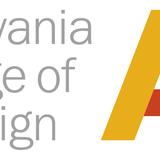- Harrisburg Area Community College is an accessible, affordable, high quality, comprehensive community college. The multi-campus college serves as a premier educational and workforce development institution. The presence of quality instruction and cutting edge technology, business and industry collaboration, and a learning-centered environment provides students the necessary knowledge, skills and values to compete and excel in a global community.
School Highlights
Harrisburg Area Community College serves 18,971 students (21% of students are full-time).
The college's student:teacher ratio of 14:1 is lower than the state community college average of 15:1.
Minority enrollment is 36% of the student body (majority Hispanic and Black), which is less than the state average of 48%.
Quick Stats (2025)
- Enrollment: 18,971 students
- In-state tuition: $7,440
- Out-state tuition: $10,695
- Student:teacher ratio: 14:1
- Minority enrollment: 36%
- Source: Integrated Postsecondary Education Data System (IPEDS)
Top Rankings
Harrisburg Area Community College ranks among the top 20% of public schools in Pennsylvania for:
School Overview
The teacher population of 1,371 teachers has stayed relatively flat over five years.
Harrisburg Area Community College
(PA) Community College Avg.
Carnegie Classification
Associate's Colleges: High Career & Technical-Mixed Traditional/Nontraditional
Baccalaureate/Associate's Colleges: Mixed Baccalaureate/Associate's
Institution Level
At least 2 but less than 4 years
At least 2 but less than 4 years
Institution Control
Public
Private not-for-profit
Total Faculty
1,371 staff
58 staff
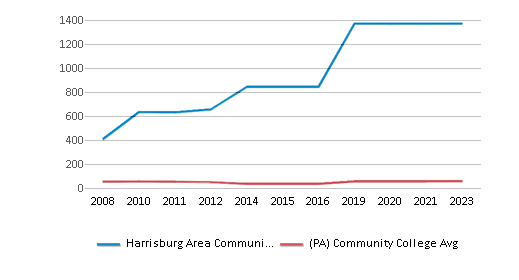
School Calendar
Student Body
The student population of Harrisburg Area Community College has grown by 8% over five years.
The student:teacher ratio of 14:1 has increased from 11:1 over five years.
The Harrisburg Area Community College diversity score of 0.56 is less than the state average of 0.68. The school's diversity has stayed relatively flat over five years.
Total Enrollment
18,971 students
361 students
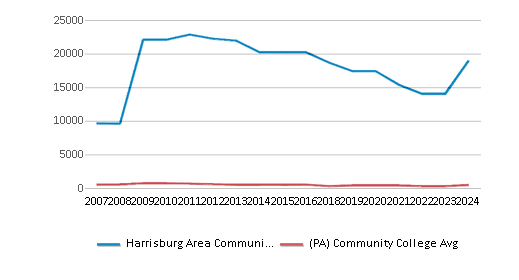
Student : Teacher Ratio
14:1
15:1
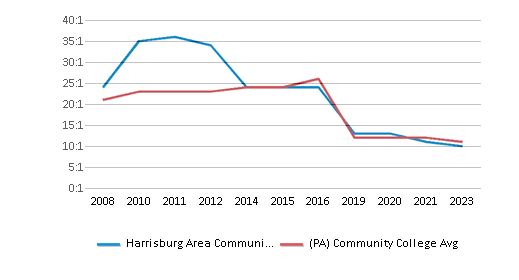
# Full-Time Students
3,929 students
310 students
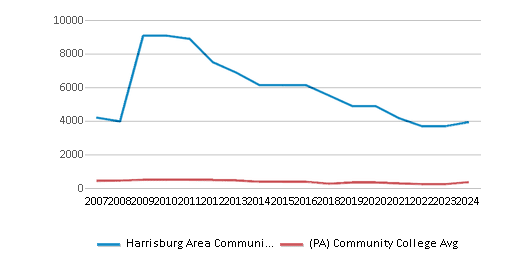
# Part-Time Students
15,042 students
134 students
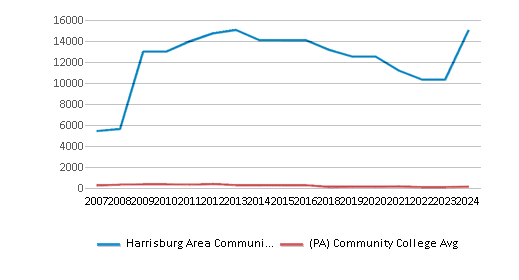
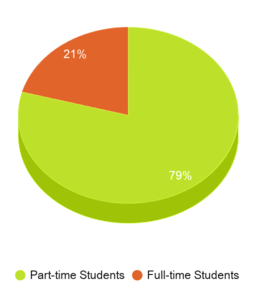
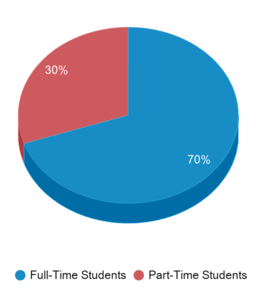
# Enrollment Undergraduate
189 students
300 students
# Full-Time Undergraduate Students
3,929 students
300 students
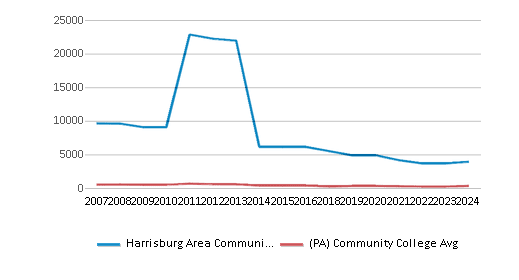
# Full-Time Graduate Students
n/a
10 students
# Part-Time Undergraduate Students
15,042 students
134 students
# Part-Time Graduate Students
n/a
12 students
Total Dormitory Capacity
n/a
330 students
% American Indian/Alaskan
n/a
n/a
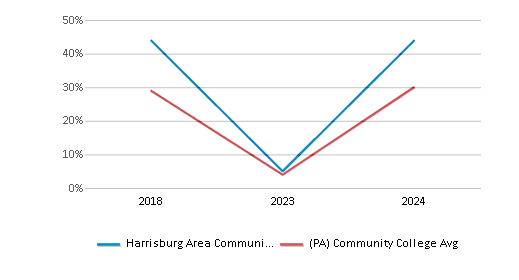
% Asian
5%
5%
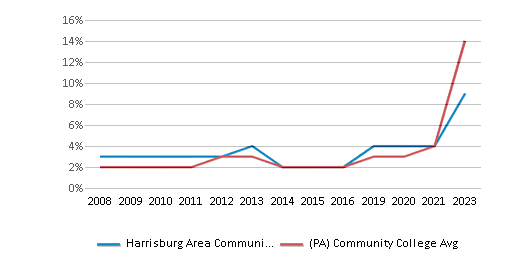
% Hispanic
12%
11%
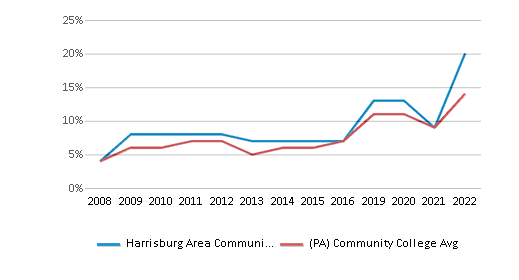
% Black
10%
15%
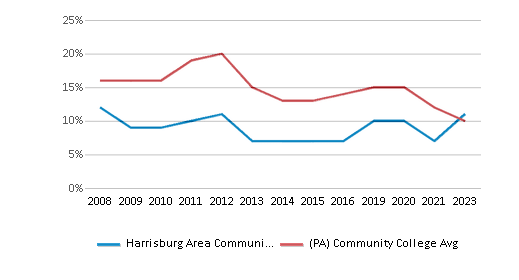
% White
64%
52%
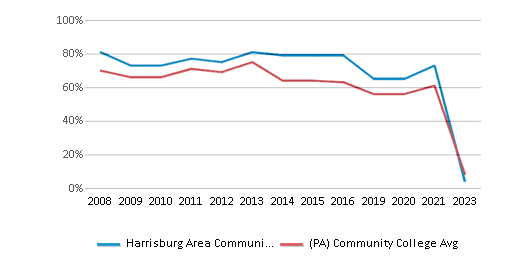
% Hawaiian
n/a
3%
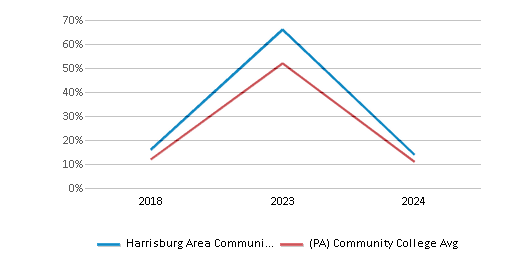
% Two or more races
4%
3%
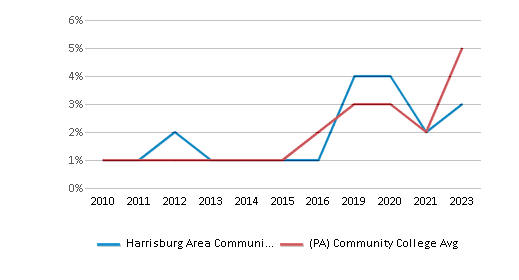
% Non Resident races
2%
1%
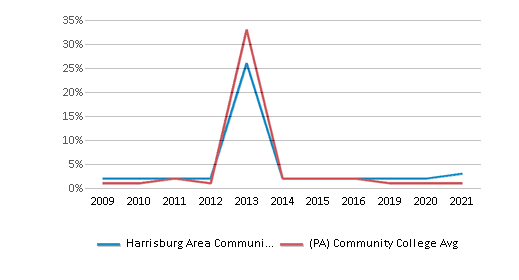
% Unknown races
3%
10%
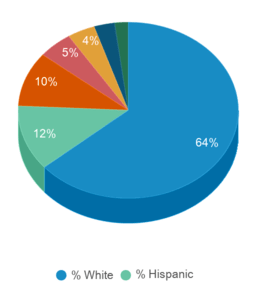
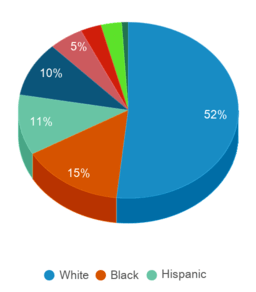
Diversity Score
0.56
0.68
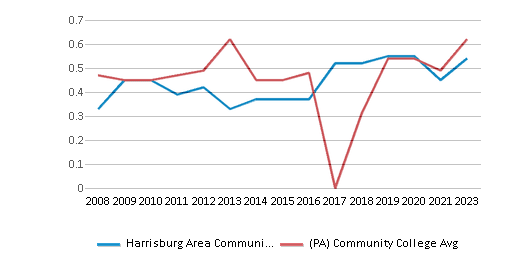
College Completion Rate (Students who graduate in less than 4 years)
0.1608%
0.6111%
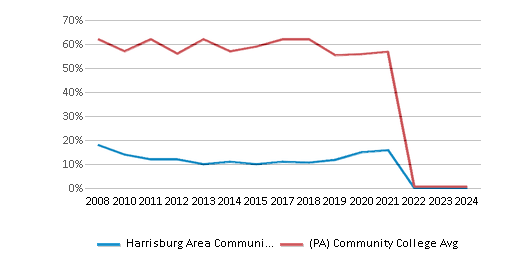
College Completion Rate (Students who graduate in 4 years or more than 4 years)
n/a
0.3822%
Average Graduate Earnings (10 Years)
$35,700
$34,900
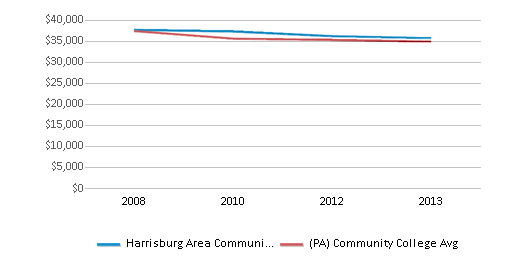
Tuition and Acceptance Rate
The public in-state tuition of $7,440 is less than the state average of $10,557. The in-state tuition has declined by 8% over four years.
The public out-state tuition of $10,695 is less than the state average of $15,342. The out-state tuition has grown by 10% over four years.
In-State Tuition Fees
$7,440
$10,557
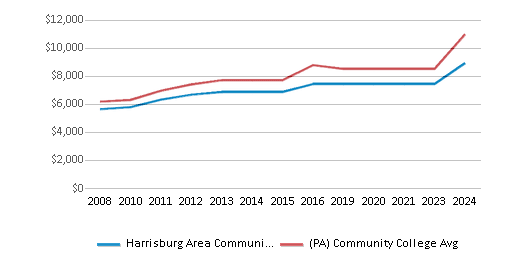
Out-State Tuition Fees
$10,695
$15,342
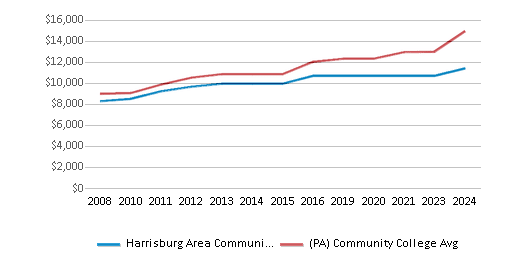
% Students Receiving Some Financial Aid
96%
91%
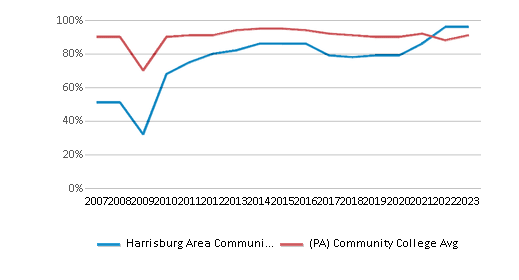
Median Debt for Graduates
$17,500
$13,620
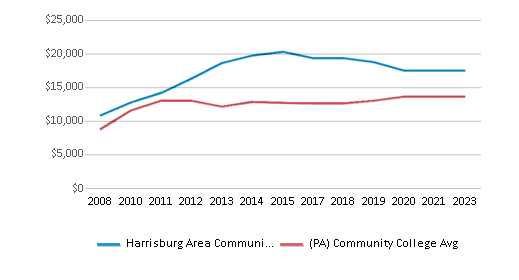
Median Debt for Dropouts
$7,250
$6,234
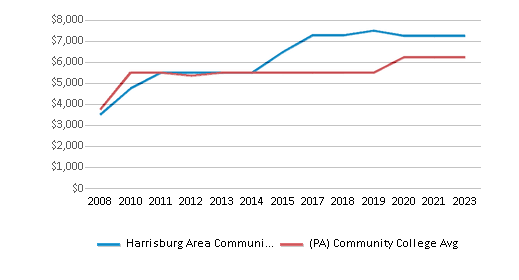
Acceptance Rate
n/a
78%
SAT Reading
n/a
460
SAT Math
n/a
470
SAT Writing
n/a
435
ACT Composite
n/a
20
ACT English
n/a
20
ACT Math
n/a
21
ACT Writing
n/a
7
Source: 2024 (or latest year available) Integrated Postsecondary Education Data System (IPEDS)
School Notes
- Established February 14, 1964, as the first community college in Pennsylvania, HACC welcomed its first class of 426 students on September 21 of the same year. HACC has become one of the largest undergraduate colleges in Pennsylvania, with nearly 11,000 students enrolling in credit programs and courses each semester. A multi-campus college, Harrisburg Area Community College offers programs and courses at four campuses and one Center: the $64 million, 215-acre Harrisburg Campus in Harrisburg, the Lancaster Campus, the Lebanon Campus , Gettysburg Campus, and the York Center. Courses are also offered at additional locations throughout southcentral Pennsylvania includeing online. The Harrisburg, Gettysburg, Lancaster, Lebanon, and York locations are linked through compressed video classrooms which allow students on all four campuses to participate in the same class. The college offers Career programs, Certificate programs, Diploma programs and Transfer Programs. The College awards Associate in Arts (AA), Associate in Science (AS), and Associate in Applied Science (AAS) degrees, Certificates of Proficiency, and Diplomas. Most programs are offered at the Harrisburg Campus, and many are available at the campuses in Lancaster, Lebanon and Gettysburg. The College is accredited by the Commission on Higher Education of the Middle States Association of Colleges and Schools. The Pennsylvania Department of Education has authorized the College to award the Associate's degree, with specific programs receiving national accreditation.
Frequently Asked Questions
How much does Harrisburg Area Community College cost?
Harrisburg Area Community College's tuition is approximately $7,440 for In-State students and $10,695 for Out-State students.
What is Harrisburg Area Community College's ranking?
Harrisburg Area Community College ranks among the top 20% of community college in Pennsylvania for: Least expensive tuition and Largest student body.
Recent Articles

Retrain For A New Career In Weeks? Yes!
In as little as three weeks, you could be retrained for a new job through community colleges. Learn about the retraining programs available and how quickly you can gain new skills.

Why Low-Income Community College Students Achieve Success at Universities
Overcoming the odds, low-income community college students are poised to become top performers once they transfer to a four-year university. Learn about the new study that has identified the successful qualities of low-income community college students.

Why Accreditation Matters: Securing Your Educational Investment and Future Career
Accreditation is crucial for college selection, affecting financial aid eligibility, credit transferability, and future employment prospects. This article explains the importance of choosing an accredited institution and provides resources for verifying a school's accreditation status.

